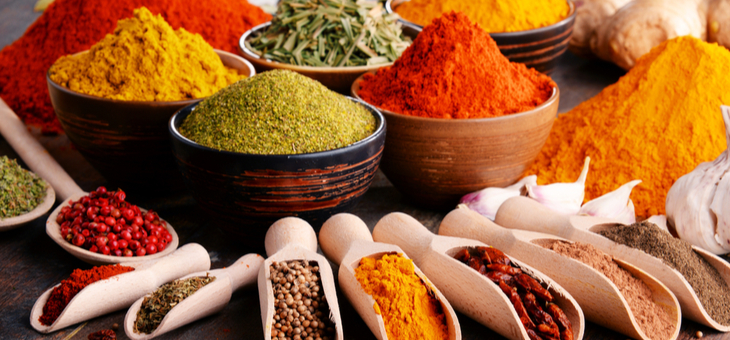We regularly hear about a new ‘miracle supplement’ that has taken the world by storm due to its multiple medical benefits, but few, if any, are as well researched as turmeric.
The health benefits of turmeric were first recorded nearly 4000 years ago in Southeast Asia. Now a new study published in The American Journal of Geriatric Psychiatry has found even more evidence that this golden spice can ward off disease and mental health problems.
Research conducted by researchers from the University of California, Los Angeles, found that a daily supplement of turmeric boosted participants’ memories by nearly 30 per cent and eased symptoms of depression.
These changes are influenced by the main compound in turmeric, called curcumin. It is a healing agent with mighty anti-inflammatory and antioxidant effects.
However, the curcumin content of turmeric is typically only around three per cent by weight. So, if you want to see the full benefits of the wonder spice without eating it for breakfast, lunch and dinner, you may want to consider a supplement.
To get the most out of a dash of turmeric in your food, consume it with black pepper. Black pepper contains piperine, which naturally enhances the absorption of curcumin into the bloodstream.
Curcumin is also fat-soluble, so adding it to a meal containing fat (such as ghee or avocado) may also help. The trick is not to use too much of it all, otherwise, you’ll ruin the dish!
Here are a few ways you can get creative with turmeric in the kitchen.
1.Add it to scrambled eggs
Use a pinch of turmeric next time you’re whipping up a healthy egg breakfast.
2. Spice up your rice
A dash of the golden stuff will liven up a pot of boring Basmati.
3. Make a warming soup
Whizz it up with carrots, ginger and onion for a creamy and satisfying winter treat.
4. Drink a calming turmeric latte
Simply add ginger, almond milk, turmeric and cinnamon together to create the perfect drink to fight the flu.
5. Add it to your hummus
If you make your dips from scratch, you can easily add a dash of ground turmeric and grated nutmeg to give your hummus a spicy kick. Serve with celery sticks and dig in.
Benefits of turmeric
Curcumin is a natural anti-inflammatory. Many common Western diseases are worsened by chronic inflammation. Curcumin has been found to suppress molecules that have been identified as contributors to inflammation. This discovery has led to prevention and treatment measures for some diseases.
Curcumin boosts levels of the brain hormone BDNF. Many common brain disorders including depression and Alzheimer’s disease have been linked with low levels of this hormone. Researchers have found that curcumin increases levels of BDNF, which enhances the growth of new neurons and helps to combat degenerative processes in the brain.
It could help to lower your risk of heart disease. Heart disease is incredibly complicated and has many contributing factors. But one benefit of curcumin is that it improves the function of the lining of your blood vessels (the endothelium).
One small study of people undergoing coronary bypass surgery showed 4g of curcumin per day, before and after the surgery, decreased the risk of the patients experiencing a heart attack in the hospital by 65 per cent.
Curcumin has positive effects on arthritis. Many types of arthritis are caused by inflammation in the joints, so it makes sense that curcumin, being a potent anti-inflammatory agent, will help.
Curcumin can aid depression management and recovery. A study in 60 people with depression showed that curcumin was as effective as Prozac in alleviating symptoms of the condition.
You should check with a doctor before taking any supplements to ensure they are safe for you to use.
Are you a lover or doubter of the benefits of supplements?
– With PA
If you enjoy our content, don’t keep it to yourself. Share our free eNews with your friends and encourage them to sign up.
Related articles:
Can turmeric improve your health
Batch cooking is your secret weapon
Heart healthy isolation cooking tips
Disclaimer: This article contains general information about health issues and is not advice. For health advice, consult your medical practitioner.

